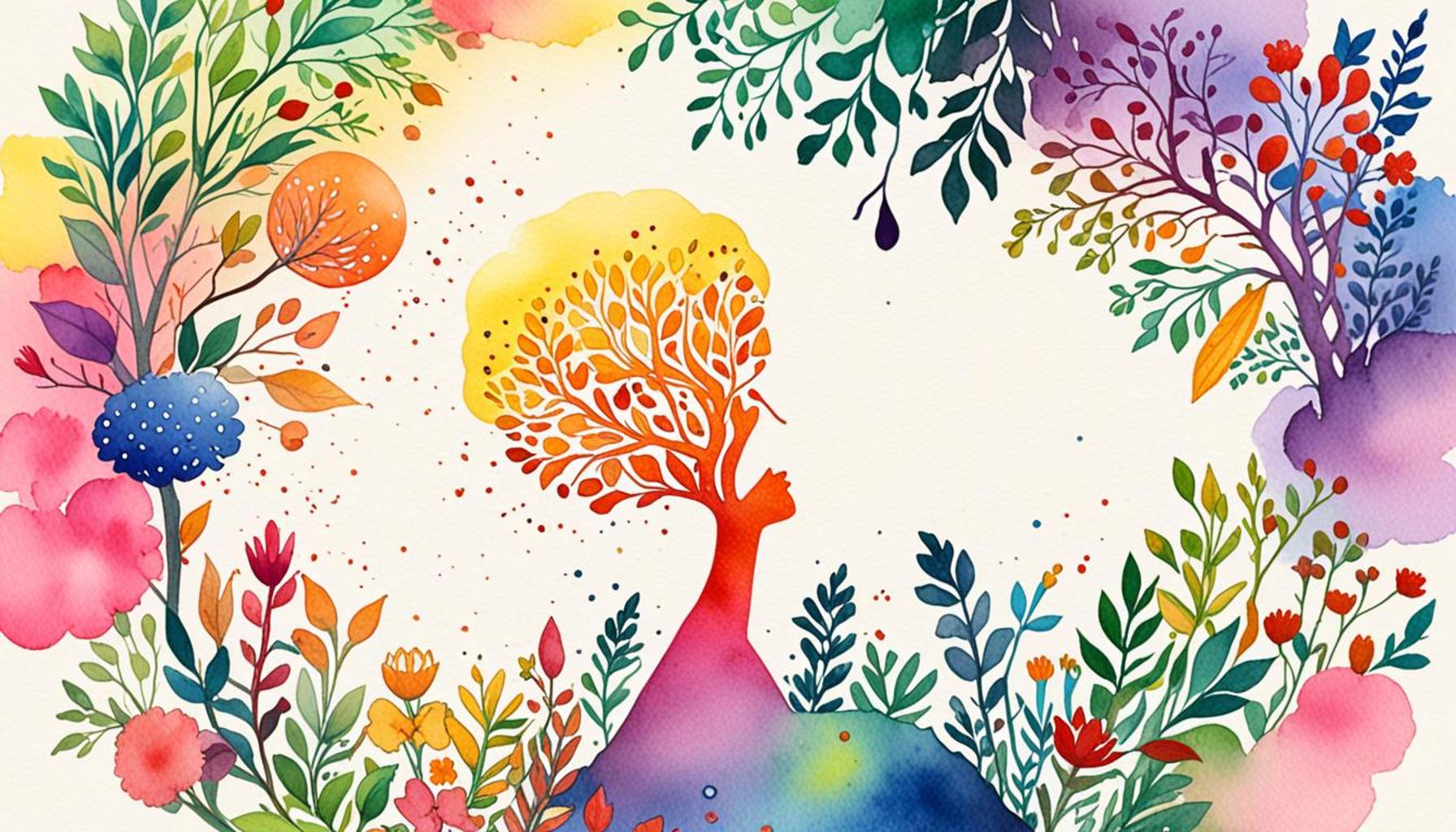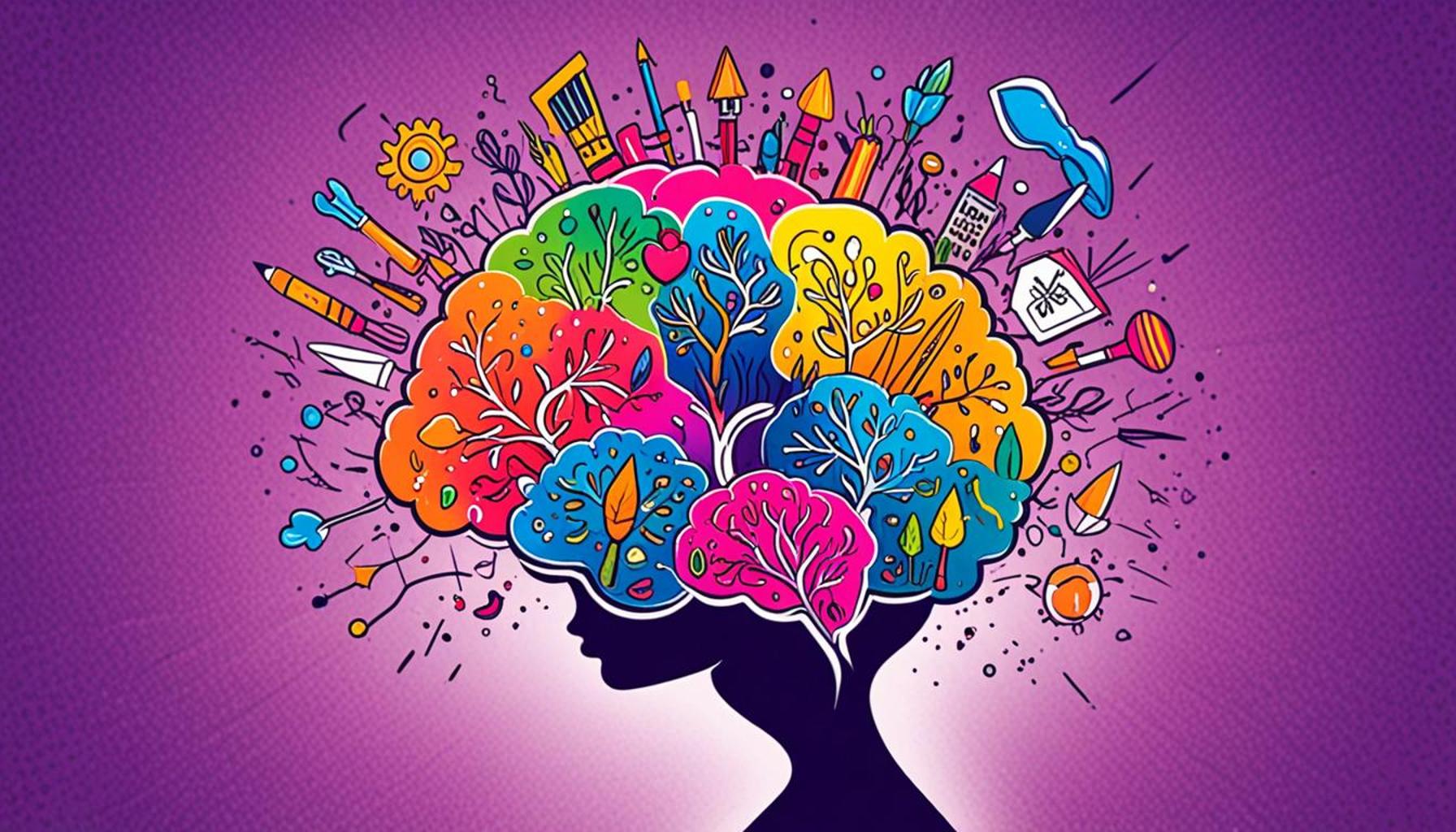Finding Meaning in Challenges: The Connection Between Personal Growth and Social Contribution

Exploring the Depths of Personal Growth through Adversity
Life’s challenges are not mere obstacles; they serve as significant opportunities for personal growth. Each difficulty encountered can act as a catalyst for self-reflection and transformation, igniting a journey toward understanding oneself better and, often, becoming motivated to contribute positively to society.
One of the most profound lessons taught by facing adversity is resilience. This characteristic enables individuals to recover from setbacks and emerge stronger than before. In Nigeria, where economic difficulties are prevalent, countless individuals demonstrate remarkable resilience. For instance, a young entrepreneur from Lagos may start a small business in response to unemployment, only to later expand it into a thriving enterprise that provides job opportunities for others. Such stories illustrate not just personal triumph but a ripple effect that can uplift entire communities.
Moreover, enduring personal struggles can foster deep empathy for others. Individuals who have experienced hardship often emerge with greater awareness and sensitivity to the challenges faced by those around them. Take, for example, the story of a Nigerian activist who once experienced food insecurity and, through their efforts, works tirelessly to address hunger issues in their community. Their personal history fuels their passion, enabling them to connect with others on a significant level, thus amplifying their impact.
As people navigate the complexities of their struggles, many become driven to engage with their communities through various initiatives. This community engagement takes many forms, such as starting NGOs focused on education or health, leading grassroots movements, or launching social enterprises aimed at solving local problems. An example is the #EndSARS movement, where young Nigerians united to advocate against police brutality, catalyzing a national conversation about governance and rights. The courage displayed by these individuals shows that personal trials can evolve into powerful movements, encouraging collective action.
In conclusion, the intersection of personal development and social contribution is palpable in Nigeria. Each individual’s journey through adversity has the potential to spark meaningful change, not only for themselves but for their communities and beyond. By highlighting these powerful narratives, we can inspire others to view their challenges as opportunities for growth and societal impact.
ADDITIONAL INSIGHTS: Expand your understanding here
The Transformative Power of Resilience
At the core of finding meaning in challenges is the concept of resilience. Resilience is the ability to withstand adversity, adapt to change, and emerge from difficult experiences with newfound strength. In Nigeria, where many citizens face economic hardships and social unrest, the capacity to be resilient becomes not only a personal weapon against challenges but also a cornerstone for fostering social change.
Resilience manifests in various ways, allowing individuals to turn their adversities into actionable contributions to their communities. Here are some key aspects of resilience that highlight its importance in the journey of personal growth and social contribution:
- Adaptability: Resilient individuals often develop a flexible mindset, enabling them to navigate through unpredictable circumstances. This adaptability not only helps them personally but also inspires those in their vicinity to embrace change.
- Problem-solving skills: Confronted with challenges, resilient people often become adept at identifying solutions. For example, a community leader in Nigeria who has faced the trauma of displacement may innovate new strategies for housing solutions, thus benefiting others facing similar circumstances.
- Hope and positivity: Resilience fosters a sense of hope, allowing individuals to focus on positive outcomes. This positive outlook can help fuel community projects aimed at improving local conditions, such as building schools or health clinics.
This transformative power of resilience is particularly evident among young Nigerians, who consistently showcase grit in the face of adversity. One remarkable example is the effort made by a group of university students who organized a crowdfunding campaign to supply educational materials to children in rural areas in the wake of the COVID-19 pandemic. Their initiative not only stemmed from a personal connection to the struggle of educational access but also galvanized community support, proving that personal growth can lead to significant social contributions.
Additionally, resilience nurtures empathy, as those who have overcome challenges often develop deeper connections to others who are suffering. This emotional intelligence becomes a vital tool for community leaders and activists as they work to address societal issues. Understanding the plight of others from a personal perspective can spark movements and campaigns that resonate with a larger audience. An excellent illustration of this is the rise of peer mentoring programs across Nigeria. Individuals who have navigated the complexities of life’s adversities mentor youth, sharing their experiences and knowledge, thereby fostering a cycle of giving back and growth.
Resilience, when coupled with empathy, brings about the opportunity for collective healing and growth. As many Nigerians continue to turn their personal challenges into avenues for social contribution, it is essential to recognize the profound link between personal growth and the impact one can have on society. The journey through adversity not only shapes characters but also builds communities, emphasizing that each challenge faced can be a stepping stone toward a more resilient and empathetic society.
| Advantage | Description |
|---|---|
| Enhanced Resilience | Navigating challenges cultivates a strong sense of resilience, allowing individuals to adapt and recover from setbacks. |
| Greater Empathy | Facing adversity can lead to increased empathy for others, encouraging a deeper understanding of communal struggles. |
| Broader Perspective | Experiencing personal challenges often shifts one’s viewpoint, promoting a broader perspective that enhances social contribution. |
| Increased Motivation | Overcoming difficulties can spark a strong desire to help others in similar situations, motivating proactive social engagement. |
Personal growth is heavily intertwined with social contribution, emphasizing the *vital connection* between individual struggles and communal upliftment. As people face personal challenges, they not only develop resilience but also foster a powerful sense of empathy. This emotional growth often translates into actions that benefit others, driving a cycle of positive social impact.Moreover, engaging with difficulties prompts individuals to expand their perspectives, encouraging them to seek solutions that uplift entire communities. This *broader perspective* not only enhances one’s life but also offers innovative approaches to help others facing similar adversities. Ultimately, personal growth emerges as a foundational catalyst for meaningful social contributions, proving that challenges can lead to profound changes in individuals and society alike.
LEARN MORE: This related article may interest you
Strength Through Community Engagement
Another crucial dimension to finding meaning in challenges lies in the impact of community engagement. When individuals leverage their personal struggles to foster community spirit and participation, they not only find personal fulfillment but also contribute to the collective well-being. This reciprocal relationship between personal experience and social contribution highlights the critical importance of solidarity among individuals facing similar adversities.
In Nigeria, community-based initiatives have emerged as powerful platforms for addressing local issues while simultaneously promoting personal growth. Programs such as volunteerism and community service enable people to engage with their neighbors, cultivate relationships, and build a sense of belonging. For instance, during the recent flooding in regions like Benue State, local youth organized relief efforts, facilitating the distribution of food and medical supplies to affected families. This crisis not only activated their sense of duty but also provided them with invaluable experiences in leadership and coordination.
Such acts of social contribution can also foster talent development. Many young people discover their abilities in communication, management, or logistics when mobilizing support for their communities. These skills become integral to their personal and professional journeys, enabling them to stand out in a competitive job market. For example, graduates from universities in Nigeria who have spearheaded social programs often find themselves pursued by employers who value practical experience and community dedication.
Moreover, community engagement opens up essential networking opportunities that can facilitate future collaborations and entrepreneurial endeavors. By working together on local projects, individuals can connect with mentors or like-minded peers, thus creating networks that nurture growth. A notable illustration of this phenomenon is the rise of entrepreneurial hubs in cities like Lagos, where young professionals form alliances to tackle social challenges through innovative startups. By combining their personal stories with collective ambition, they forge pathways for both personal advancement and broader societal impact.
The measurable outcomes of community engagement also reveal a correlation between individual contributions and overall social improvement. According to the National Bureau of Statistics of Nigeria, communities with high levels of civic engagement tend to experience lower crime rates and improved educational outcomes. For instance, in various neighborhoods where local watch groups have been established, residents report heightened security and mutual support amongst families, which encourages a spirit of cooperation and resilience.
Furthermore, the cycle of positive feedback loops generated by community engagement cannot be overstated. When individuals contribute, they often experience the rewards of gratitude and recognition, which serves as a motivational force for further involvement. Initiatives such as community sports leagues or arts festivals provide platforms for shared experiences, drawing on cultural elements that resonate deeply with Nigerian identity. These interactions not only solidify individual commitment but also weave a fabric of resilience among participants as they share challenges and triumphs alike.
By embracing their regional intricacies and uniting under common goals, Nigerians exemplify how personal growth and social contribution intersect. Each individual’s journey through difficulties, when tied to the broader community, becomes a beacon for collective strength, driving the narrative that through shared struggles, meaningful change can emerge.
ADDITIONAL INSIGHTS: Expand your understanding here
Conclusion: Embracing Challenges for Collective Progress
In a world rife with uncertainties and trials, the journey of finding meaning in challenges stands as a profound testament to human resilience. Through personal struggles, individuals often uncover a unique strength that not only facilitates their personal growth but also catalyzes significant social contributions. The intertwined nature of these experiences highlights how challenges can forge paths toward enhanced community involvement and emotional fulfillment.
Nigeria exemplifies this dynamic beautifully. From grassroots volunteerism during crises to the innovative entrepreneurial initiatives emerging in urban centers, individuals are transforming personal adversities into powerful agents of change. The stories of youth rallying together in times of catastrophe, as seen in the response to flooding, illustrate that out of hardship arises community solidarity and leadership. These actions not only alleviate immediate suffering but also enrich personal skill sets, equipping individuals for professional success and cultivating a generation that values civic responsibility.
Furthermore, the empirical evidence linking community engagement to improved social outcomes underscores the vital role each person plays in nurturing a culture of cooperation, safety, and resilience. As engagement breeds recognition and gratitude, a virtuous cycle of giving and receiving continues, empowering communities to overcome barriers and foster mutual support.
The journey of weaving individual growth into the fabric of social contribution invites us all to explore the transformative potential of our challenges. By embracing these moments of adversity with courage and intent, each one of us can become a cornerstone of progress within our communities. As Nigeria continues to face its unique set of challenges, the call is clear: when we find meaning in our struggles and contribute to the collective, we not only uplift ourselves but pave the way for a brighter, more resilient future for all.


